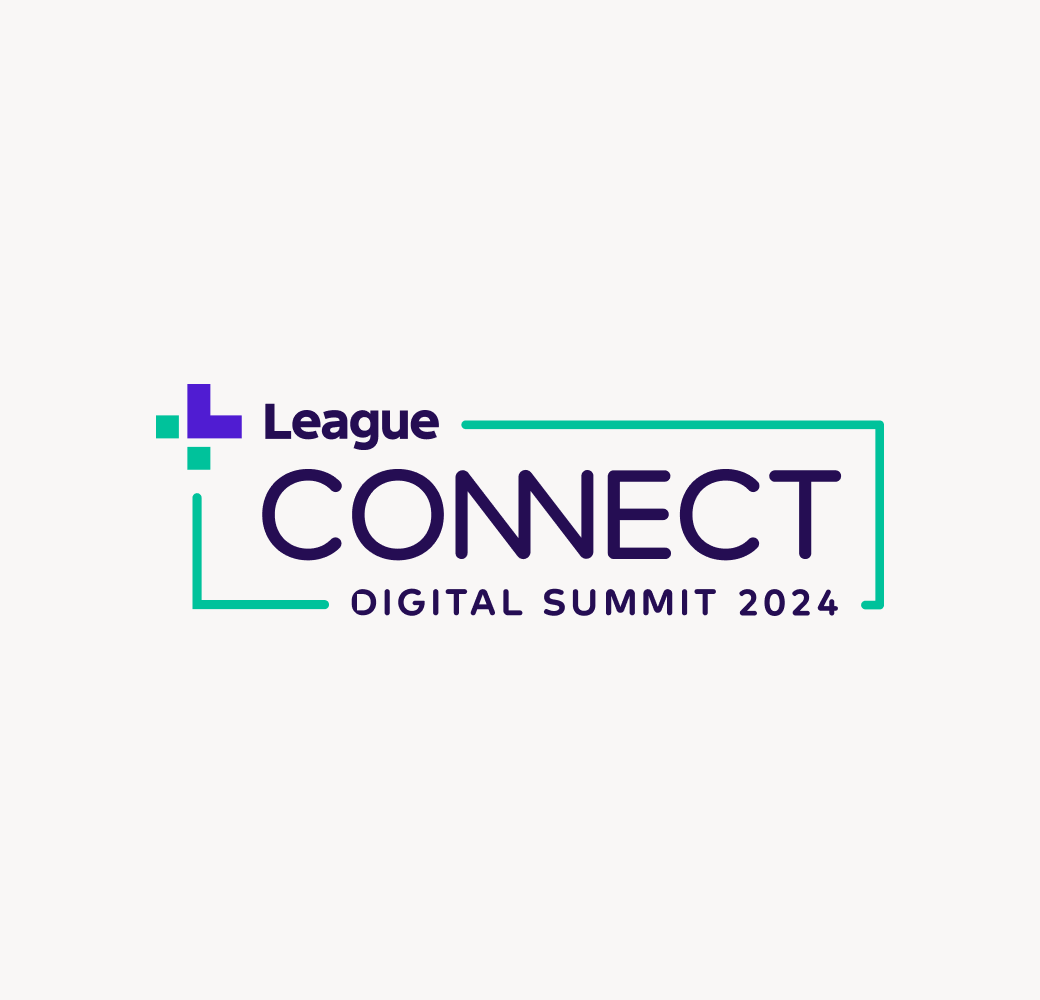Summary
- Health equity is a fundamental right the healthcare industry must actively work to ensure for all individuals and organizations that must stay adaptable to the evolving landscape of healthcare needs.
- Progress in health equity requires a willingness to start from a place of curiosity, embrace collaboration, and learn from successes and failures.
- League is committed to advancing health equity by empowering people to be the healthiest versions of themselves.
Health is a human right. Everyone deserves to be as healthy as possible, regardless of who they are, where they live, or how much money or education they have. Health equity, a term broadly used across the entire healthcare industry, is simply the state where everyone has a fair and just opportunity to attain their highest level of health.
Morally, I bet we’re all aligned that equity in healthcare is essential – there’s arguably nothing more important than each and every person having access to life-saving, life-altering care. It’s why we exist as an industry.
Health equity is certainly talked about often, and rightfully so. As a field of study, it has existed for more than a century, and research about health disparities, or “preventable differences in the burden of disease, injury, violence, or in opportunities to achieve optimal health experienced by socially disadvantaged racial, ethnic, and other population groups and communities” (CDC), is well documented and readily available. There are a multitude of critically important frameworks and accreditation programs healthcare leaders must consider, as well as plentiful information about the economics of why they should pay attention.
It’s overwhelming. It’s important. And it’s past time to take action.
As we continue to figure out where to start, or as we continue to talk about digital transformation in healthcare, we must recognize that true transformation simply cannot occur if the people who need the most help are consistently left behind, at best, or, at worst, ignored.
The time is now for healthcare organizations of all sizes – from health plans to health systems to consumer health organizations to digital solutions and the platforms that support them all – to take significant steps forward in advancing health equity. To be successful, we must go at it together.
So, what does that mean for League, and why do we have any authority to discuss it?
It all comes down to our mission.
Since League launched a decade ago, we’ve been on a mission to empower people to live healthier, happier lives every day. Naturally in doing so, we’ve been – albeit a bit inadvertently – working to advance health equity.
As the leading healthcare consumer experience platform, we work with our clients to deliver experiences that help people understand their coverage, find and engage with relevant resources and services available to them, take actions to learn about and improve their health, and generally get the care they need. Long story short: we create healthcare experiences people use and love so that they can be the healthiest versions of themselves.
There’s a significant degree of flexibility in the health tech space. Our platform and entire corporate ethos are designed around agility and adaptability. Paired with our incessant focus on the consumer, we’ve built an organization that is well-positioned to both try new things and make a tangible impact on people’s lives.
League is dedicated to ensuring all our consumers have equitable and just access to the care they deserve.
It’s been over a year since we began a concerted, truly cross-functional effort to advance health equity. Like all good but hard work, it’s been a learning process. These are the five biggest lessons we’ve learned so far as we’ve worked to build our desired future.
Five Lessons Learned
1. You don’t know what you don’t know, and that’s okay.
Dr. Bryan O. Buckley, Director, Health Equity Initiatives at NCQA, recently spoke with us during a roundtable of healthcare executives and shared phenomenal insight. One particular thing he said regarding data paralysis, or the feeling that you need to have every piece of information before you can meaningfully take action, was that it’s okay to not know the answer to something, because that alone gives you a good place to start.
When we don’t have the answer to a question, we must ask ourselves why not, how we can get it, and what we will do with that information to support our clients and end users. And yes, that often leads to even more questions, but as many others have said, a curious mindset is everything and often leads to unexpected results.
2. You can’t do it alone (nor should you).
Considering the healthcare industry’s colossal size, the historic and systemic inequities built into the system, or the massive opportunity for change, it’s easy for individual efforts to feel futile. And while they’re not, we all know the old adage that two minds are better than one.
As a digital consumer experience platform, we’re uniquely privileged to gather data to better understand people’s dynamically changing needs and tap into the phenomenal work that’s happening across the globe and at the ground level, connecting people to resources that can change their lives. We humbly appreciate this responsibility and are grateful for the partners, clients, and consumers who work with us to learn, grow, and deliver support that advances the mission of equity for all.
3. It’s better to try and fail than make no change at all.
As I’ve repeatedly stated, we can’t afford to wait. So, in that spirit, and not without an appropriate amount of planning and caution, we’ve learned we need to try new things. If we consider ourselves the changemakers of the healthcare industry, we must be willing to take on the risk of failure. But it is better to try, realize you need to rework your strategy or approach, and learn from those moments than sit around avoidant and continuing to feel frustrated. There will never be the exact right time or set of circumstances; perfect is an unattainable and moving target.
To help manage some of the uncertainty and risk that comes with trying new things, we’ve formed a set of guiding principles that we use to hold ourselves accountable both internally and externally. When we need to gauge if we’re on the right path, we can ask ourselves: are the experiences we’re creating inclusive, safe, as unbiased as possible, culturally humble, accessible, and evolving? If not, it’s back to the drawing board. Perfection may not exist, but our consumers deserve the relentless pursuit of it.
4. Success at all sizes matters.
Big problems have big goals, and achieving health equity is just about the biggest out there (maybe behind world peace). It’s important to remember that success isn’t binary. Baby steps are still steps, and they’re critically important to both acknowledge and celebrate, especially when the work gets hard and you may feel disheartened. (And is there a single person in the healthcare industry who hasn’t felt a bit discouraged at one point or another?)
We must learn to measure the small things, take wins where we can, and occasionally appreciate the mere fact that we’re continuing to show up to effect change. Of course, it’s still important to designate goals and mark milestone accomplishments along the way. This is another reason for having an org-wide focus on health equity, because each team can contribute in vastly different, but equally important ways.
5. Rapid evolution is necessary.
As you read, “evolving” is one of our guiding principles. Health is not static and the experiences that support it shouldn’t be either. We’ve learned that making meaningful progress in our health equity work requires us to adapt to changing market and consumer needs. It requires us to continue challenging our assumptions and unconscious biases, unlearning some of what we thought we knew. It also requires us to ask for and incorporate feedback, study our impact, and use that information to refine our solutions.
After all, a person’s health journey is inherently intimate. Becoming a partner in it requires us to earn their trust. If we’re not putting in this work every day, we’ll simply never earn the right to be there for them.
Where do we go from here?
Do we have all the answers? Of course not. But one thing we know for sure is that we will continue to work with clients, partners, and consumers to rapidly deploy, test, track, and iterate on the experiences we build, taking the insights we glean to deliver more relevant support right to the hands of the people who need it.
Yes, this is hard work, but League is committed to meeting that challenge. To quote Lily Zheng’s DEI Deconstructed, “[…] we can both build and fight our way to a better world.”
That’s just what we’re doing, and I hope you join us along the way.
We continued the conversation at the League Connect Digital Summit. Access the on-demand session recording here.

Digital strategies to advance health equity
Learn actionable strategies to implement health equity measures, track progress & collaborate with leaders like NCQA & Google to drive change.
Sources and Suggested Reading
1Human rights, WHO
2The historical roots and seminal research on health equity, NCBI
3Disparities in Health and Health Care: 5 Key Questions and Answers, KFF
4Health Disparities, CDC
5Kids of color get worse health care across the board in the U.S., research finds, NPR
6Medicaid Patients Have Greater Difficulty Scheduling Health Care Appointments Compared With Private Insurance Patients: A Meta-Analysis, PubMed Central
7CMS Framework for Health Equity, CMS
8NCQA’s Health Equity Accreditation Programs, NCQA
9Health equity: What is it, and why should COOs care?, Deloitte
10Health equity is both a moral and business imperative, Deloitte
